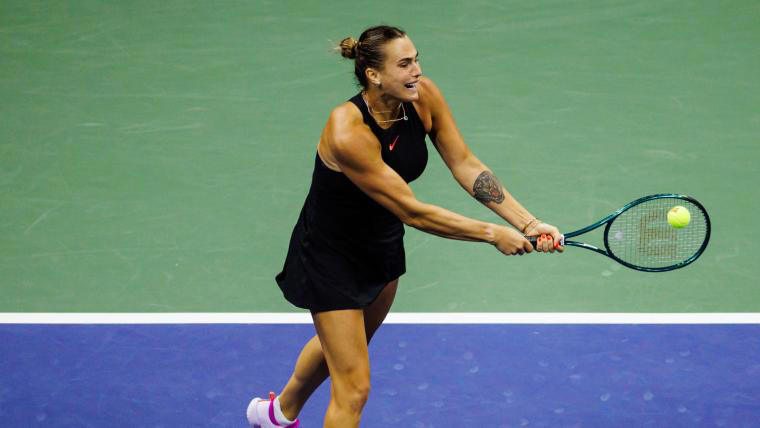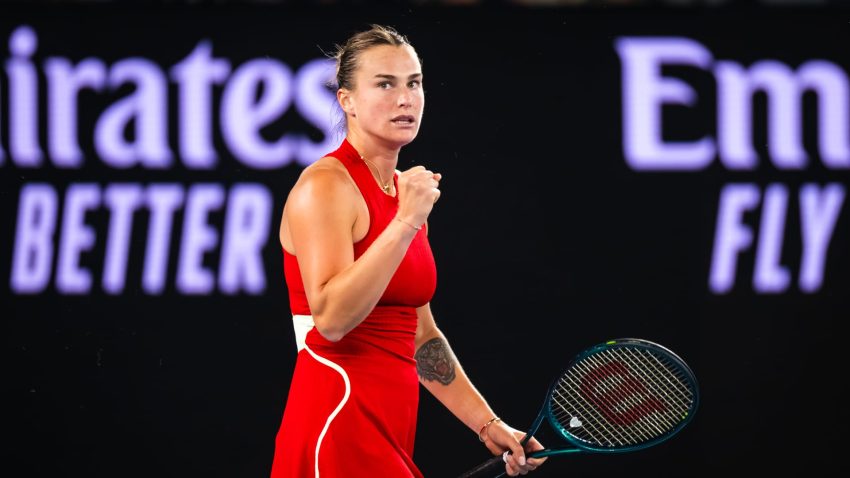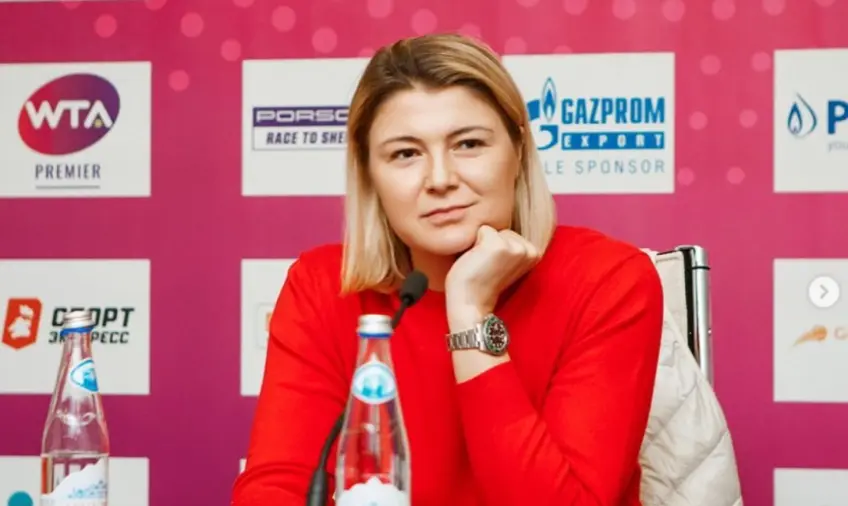Dinara Safina, once the world’s top-ranked tennis player, has revealed a fascinating story about Aryna Sabalenka reaching out to offer her a coaching position. This revelation has sparked intrigue in the tennis world, as it provides a unique glimpse into the camaraderie and professional respect shared among athletes. Sabalenka, known for her fierce on-court demeanor and relentless pursuit of excellence, approached Safina during a transitional moment in her career, seeking guidance from someone who had once dominated the sport.
In this blog, we’ll explore the significance of this interaction, Safina’s thoughts on modern tennis, and how the story highlights Sabalenka’s drive to innovate and evolve her game.
The Legacy of Dinara Safina
To appreciate why Sabalenka would reach out to Safina, it’s essential to understand Safina’s storied career. The Russian star ascended to the World No. 1 ranking in April 2009, thanks to her incredible consistency and tenacity on the court. Though her career was cut short by injuries, she left an indelible mark on the sport, reaching three Grand Slam finals and capturing several high-profile titles.
After retiring, Safina stepped away from the limelight but remained connected to tennis, occasionally offering insights as a commentator and mentor. Her reputation as a hard worker who excelled under pressure made her an ideal candidate for a coaching role. For a player like Sabalenka, who thrives on aggression and power but constantly seeks to refine her technique and strategy, Safina’s experience would be invaluable.
Aryna Sabalenka: A Player Always Looking to Improve
Sabalenka’s rise to prominence in the WTA has been nothing short of spectacular. With her explosive serve, ferocious groundstrokes, and unmatched intensity, she has cemented herself as one of the tour’s most exciting players. Her journey to becoming a Grand Slam champion was marked by moments of brilliance and bouts of inconsistency, as she worked tirelessly to balance her all-out aggression with a more controlled and tactical approach.
The Belarusian star has often spoken about her desire to grow as a player, both mentally and technically. Her decision to reach out to Safina underscores her willingness to seek unconventional paths to improvement. Sabalenka reportedly admired Safina’s ability to maintain focus and consistency under pressure, qualities she felt could help elevate her game to the next level.
The Offer: A Meeting of Minds
Safina shared the story during a recent interview, recounting how Sabalenka contacted her after a practice session at a major tournament. The Belarusian reportedly expressed admiration for Safina’s career and sought her advice on managing the mental and physical toll of professional tennis.
“She told me she wanted to learn from my experiences,” Safina recalled. “It was flattering, of course, but also a bit unexpected. I hadn’t seriously considered coaching, but Aryna’s passion and determination made me think twice.”
Safina described the offer as both humbling and inspiring. Though she ultimately declined, citing her current commitments and reluctance to travel full-time, the exchange left a lasting impression on both players. Sabalenka’s gesture was a testament to her respect for the sport’s history and her desire to learn from those who paved the way.
Why Sabalenka Turned to Safina
Sabalenka’s decision to approach Safina wasn’t just about admiration—it was a strategic move. Safina’s career, marked by her ability to navigate high-stakes moments, offered a blueprint for success in the pressure-packed world of modern tennis. Sabalenka has often struggled in crucial matches, and she saw in Safina a mentor who could help her overcome those hurdles.
Moreover, Safina’s experience with transitioning from clay to hard courts could have been particularly beneficial. Sabalenka, though dominant on fast surfaces, has occasionally faced challenges in adapting her game to different conditions. Safina’s insights into training regimens, match preparation, and mental toughness could have provided Sabalenka with the tools she needed to achieve greater consistency.
Safina’s Perspective on Coaching and Tennis Today
While Safina chose not to take on the coaching role, she expressed admiration for Sabalenka’s approach to self-improvement. “She’s incredibly driven,” Safina said. “It’s not easy to admit you need help, especially when you’re already at the top of your game. Aryna’s willingness to learn and grow is what makes her a champion.”
Safina also offered her thoughts on the state of women’s tennis today, highlighting the evolution of the game since her playing days. She praised players like Sabalenka for their athleticism and versatility, noting how the sport has become faster and more physically demanding. “The game has changed, but the fundamentals—mental strength, adaptability, and hard work—remain the same,” she said.
A Missed Opportunity or the Start of a New Dynamic?
Though Safina declined the coaching offer, her interaction with Sabalenka has sparked speculation about whether she might consider similar roles in the future. Fans and analysts alike have pointed out that Safina’s expertise could be invaluable to many players seeking to navigate the complexities of the professional circuit.
For Sabalenka, the experience of reaching out to a legend like Safina may still prove transformative. The exchange underscores her commitment to growth and her recognition of the importance of mentorship in a sport that can often feel isolating. Whether or not she finds a mentor in someone else, the gesture itself reflects her evolution as a player.
The Bigger Picture: Mentorship in Tennis
The story of Sabalenka and Safina highlights a broader trend in tennis: the growing emphasis on mentorship and collaboration. In an era where physical and mental demands are higher than ever, players are increasingly turning to former champions for guidance. From Serena Williams working with Patrick Mouratoglou to Simona Halep teaming up with Darren Cahill, these partnerships often yield remarkable results.
Sabalenka’s outreach to Safina fits into this narrative, showcasing the value of learning from those who have navigated the highs and lows of the sport. It also reflects a shift in the culture of tennis, where players are more open to seeking help and acknowledging the need for a support system.
Conclusion
Dinara Safina’s recounting of Aryna Sabalenka’s offer provides a fascinating glimpse into the dynamic world of professional tennis. It’s a story of mutual respect, ambition, and the relentless pursuit of excellence. While Safina may not have stepped into the coaching role, the interaction between the two players serves as a powerful reminder of the importance of mentorship and the enduring legacy of tennis champions.
For Sabalenka, the willingness to seek advice and learn from a legend like Safina is yet another sign of her growth as a player and person. As she continues to make her mark on the sport, moments like these will undoubtedly shape her journey and inspire others to embrace the power of collaboration and self-improvement.


